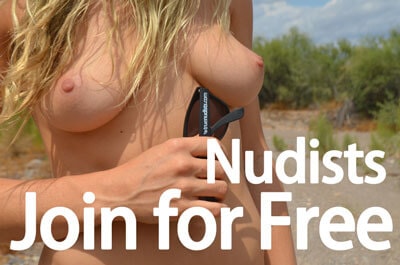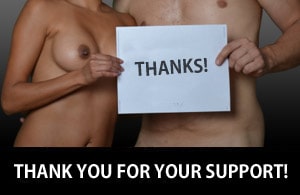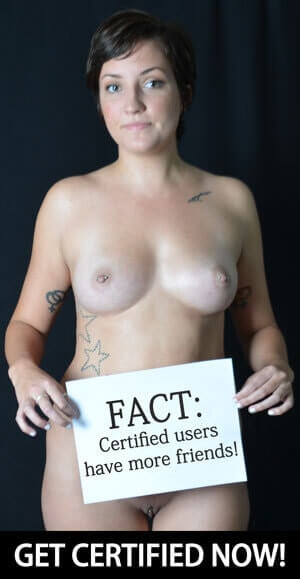Photo Presentation - How to Make Your Photos Look Good
Subtext - Despite TN's Awful Photo Handling System
The idea for this topic came from a thread on another group which was about ways of cropping photos to achieve different effects. After about sixty posts which had explored lots of productive issues and extended the discussion to include other issues of photograph editing, the whole thread disappeared as the originator abruptly left TN. Rather than risk such possibilities recurring I thought it would be a good idea to re-open the discussion in Free Style Nudity. Another spur was a very recent request from a group member to assist with rotating a photograph, an issue which, as a quick look through profile pics will show, clearly afflicts a good many members of TN.
The Basics
Practically every photo can benefit from some degree of editing - achieving consistently good results just looking through the viewfinder and accepting what comes out is a very hit and miss affair. So, you will need editing software, but even here we are jumping ahead rather too much, because for many people most of their cherished photos lie way beyond the reach of modern computing technology in the form of boxes full of slides or negatives or albums full of prints. In this thread I think we should we should try to address all those issues, but always with a view to what is most immediately useful to group members.
Photo Editing
Most cameras come with some sort of organisational and basic editing software which should enable the users to do simple tasks such as rotation of photos. If you have one of these editing packages give it a try, but beware that they all try to a greater or lesser extent to impose the manufacturer's idea of photo organistaion, all of which, in my experience at least, are likely to lead to episodes of hair-tearing rage at the ridiculous assumptions they incorporate. My advice is install the software but always download the photos by taking the card out of the camera and reading it from the computer.
If you don't have manufacturer's software you can always try the rather clunky but just workable Paint package which comes with Windows, or, for greater flexibility, the freeware Irfanview can be highly recommended although you will need to clue yourself up on the comprehensive range of editing techniques which it incorporates - it is not an "open it up and get going" type of product.
An Important Note - Size matters
Even basic cameras these days have a very healthy megapixel count, often 8-10MP or higher, allowing lots of detail to be recorded in the photos, but it is still very common to see people uploading photos at very low resolutions, often way below 1MP. The most common reason for throwing away all that resolution seems to be nothing more than profound ignorance, or possibly indifference. Some people set the resolution used by the camera to a low level because they can then get more photos on the card - that is just stupid, cards are incredibly cheap so buy a couple of big ones. Some people use the download software which comes with the camera without checking how it is set up - again, completely stupid because many systems seem to default to "web friendly" sizes so you can send your boring selfies very quickly on a flaky internet connection. The full resolution versions remain on the card, but many people don't realise that and just use the hideously compressed versions on the computer.
To continue with the idea that size matters, it is high time we had another go at TN. Following the recent, only ever so slightly successful upgrade of the TN system, uploads to both the profile pic and group pic sections will now accept file sizes up to 5MB - previously group uploads had been limited to 3MB. Not bad, you might think, but this is TN, so think again. While accepting decent file sizes, TN still chooses to downsize and compress the files, so that a photo which starts off at 4 Megapixels with a file size of 5MB will typically be compressed down to 0.6 Megapixels with a file size of 0.06MB. Here is an approved profile pic I uploaded earlier:
5MB ended up as only 60kB and 2000x2000 pixels was cut down to 800x800. Notice the gratuitous addition of the TN logo, complete with a chunk of pak-choi as garnish. At least in this case it doesn't spoil the view of the interesting bits, I hear you say. True, but it took me some time to edit the photo to achieve that result - you need to leave enough space below to ensure that any really important parts do not get entangled in the garnish.
So, you might ask, if that is the case, why does it matter if I upload small files at low resolution? Does it make a difference? The answer is yes, it does make a difference - the TN system will suck in your image and apply its computerised mangling even if you upload a small size image. What you will see after that is an image which has been double mangled, not a pretty sight.
For those with a big screen cut and paste the following link to what the original looked like:
https://farm8.staticflickr.com/7637/16587776988_4703efe295_o.jpg
Comprehensive Editing Packages
Freeware packages exist, but given the development costs of software you can't expect developers to give away all their intellectual property for no gain. There are some cut-down versions of well-known packages given away with hardware, but, to coin a phrase, they all have all the nice bits taken out. They will probably work for simple editing tasks but if you want to get clever, be prepared to pay. Adobe Photoshop and Corel PhotoPaint are two of the best known packages - Photoshop seems to get most of the plaudits but I think PhotoPaint is much more intuitive to use.
So to conclude the first post to this thread, to our group member with the rotational problem, read all of the above again and see what you can do.
Pamela
Thanks Pamela, I also was on the cropping thread and appreciated your discussion of how to minimize the damage of the TN logo. Once I realized what was being done to uploaded pictures (compressing, cropping, insertion of logo) I changed my strategy for editing. I always crop almost square and try to put something that will either obscure the logo in the bottom right corner or at least make sure it doesn't cover any body parts or essential elements in the composition. I especially like to hide the logo in vegetation as in this photo.
Thanks Pamela, I also was on the cropping thread and appreciated your discussion of how to minimize the damage of the TN logo. Once I realized what was being done to uploaded pictures (compressing, cropping, insertion of logo) I changed my strategy for editing. I always crop almost square and try to put something that will either obscure the logo in the bottom right corner or at least make sure it doesn't cover any body parts or essential elements in the composition. I especially like to hide the logo in vegetation as in this photo.
Hit the enemy with cabbages!
Pamela

I rather liked the view of my pubic hair peeking out
These girls had lovely bottoms until TN got to work on them
Well, all except for the eventual winner who was clearly judged more on her rather revealingly trimmed front view
That leaf is just plain disrespectful!
There may be shadow down there, but is is rather impolite
Maybe the leaf is pointing the way, but I prefer my front view without adornment by ".C"
Near miss, maybe I should just be happy the logo draws attention to the bottom of the photo, so to speak!
That is just a gross intrusion into the composition
Were they at all concerned I might have had a bit more to show in this photo?
I guess I should be happy the leaf points the way
I had some nibbly bits showing right there!
Rather spoils the view of the leopard skin knickers I had bought specially to pose topless for my boyfriend
Ouch, that Hurts!
Maybe TN's idea of a particularly intimate tickle, but most inappropriate
Not sure if TN is just pointing the way to my clitoris or being more "hands on"
Pamela

Maybe TN's idea of a particularly intimate tickle, but most inappropriate
Not sure if TN is just pointing the way to my clitoris or being more "hands on"
What a surprise - TN's Gestapo has just deleted the last two photos!
What are these retards scared of - where they came from?
Pamela
]
The photo above is me relaxing on a holiday with my two children.
TN moderators have seen fit to delete it. Is the TN site not dedicated to nudism? Does nudism not acknowledge that the human body is in all aspects and respects fit and acceptable to be seen? Why, then, do the "lieutenants" of the management not respect those principles?
I do not expect they will answer that question. In which case their perverted interpretation of nudism will prevail and thinking members will wonder what is the point of using our own efforts to prop up this unprincipled regime.
I, for one, am pondering that very point.
Pamela
Basic Techniques of Photo Editing
It is time to extend this thread and open up the debate to include other aspects of photo editing. I am sure I am not alone amongst group members in remembering the sort of antics we used to go through to achieve the results we desired in the darkroom, but younger members, who have only known digital photography, may be be somewhat mystified. Cropping was absolutely essential to the process and was done under the enlarger, sometimes in combination with judicious use of the guillotine on the finished print to create a neat white border around the photo. With chemical processing a border usually meant nothing more than a white area on all four sides of the photo, achieved by masking off the edges from the light with the paper mounting frame. Digital editing packages now allow much more complex borders, some of which might have been technically feasible using masking and double exposure techniques, but on my very limited budget I couldn't afford to risk wrecking whole sheets of paper on academic exercises which were quite likely to go wrong.
I think of the old darkroom techniqes as "classical" photo editing - framing/cropping, dodging and "perspective" control achieved by tilting the photographic paper under the enlarger instead of just lying it flat on the baseboard. Elements of all three techniques are carried over into digital photo editing. Cropping is the main subject of this discussion thread, but the other two are not so well known.
Dodging
Printing photographs to paper was the dominant way of showing and sharing photographs until very recently. One of the the problems with printing, whether in monochrome or colour is that the range of brightness which can be shown on paper has always been very much lower than the range of brightness which can be captured by the film. This results frequently in some parts of the print being so dark that no detail is visible and others parts being burnt out to blank whiteness. The dark parts of the print correspond to very pale parts of the negative - a lot of light passes through those parts of the negative to create the dark parts of the print.
Dodging involves reduces the amount of light which reaches the paper in those potentially over-dark areas. It has to be done in a graded way, otherwise abrupt boundaries would be very obvious on the print. The basic technique uses a mask of dark card mounted on a thin stick, held in the beam of light from the enlarger and used to produce a shadow on the paper below in the areas at risk from being too dark. The mask is moved continuously and smoothly, concentrating on keeping light away from those areas while avoiding obvious demarcation lines between shaded and unshaded areas. The mask can simply be a disc, or it can be a more random shape which better suits the particular shape of the potentially dark section of the print.
Dodging still plays a major part in digital photo editing. Terminology varies from one software package to the next, but the more advanced programmes allow the creation of masks which isolate parts of the image for particular attention (think of the paper mask on a stick) and also allow the applied effects to be faded out gradually in the areas surrounding the edgeof the mask (think of moving the paper mask to create a graded transition).
Below is a section of an early nude photograph of me which was very difficult to print satisfactorily on paper without very considerable trial and error, not to mention time and frustration!
A very disappointing result - for me and the photographers!
Full size image - copy and paste: https://farm9.staticflickr.com/8591/16622968945_1d5e1baab2_o.jpg
And here is the same image after dodging to keep light away from the underexposed areas:
What I wanted to show - my pubis clearly visible through my closely trimmed pubic hair revealed by dodging
Full size image - copy and paste: https://farm9.staticflickr.com/8712/17074459632_e748322188_o.jpg
Pamela



